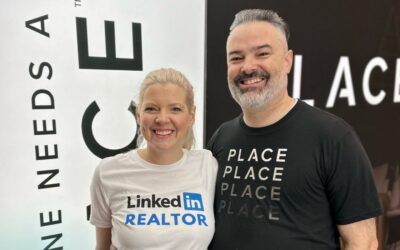Money is an important aspect of our lives, and having a healthy relationship with it can help us achieve financial stability and build generational wealth. However, many of us need help with unconscious money mindsets that can hold us back from achieving our desired financial goals and retirement lifestyle.
First, explore the four unconscious money mindsets and how they impact our ability to save, spend, and invest. Then consider the wealth-building strategies and the Flipping the Triangle model that explains the goal of turning assets into passive income.
What is a money mindset?
“Doing well with money has a little to do with how smart you are and a lot to do with how you behave.” – Morgan Housel, author of “The Psychology of Money”
A money mindset refers to our beliefs and attitudes about money that we learn in childhood that can be influenced by family, culture, and life experiences. Financial psychologist Brad Klontz identifies four common money mindsets, which he calls scripts: money avoidance, money worship, money status, and money vigilance.
Money avoidance is where people avoid dealing with money altogether due to fear, guilt, or shame. Money worship is the opposite; people believe money will solve all their problems and that having more money is the key to happiness. Money status is where people believe that their self-worth is tied to their net worth and that having more money increases their status and prestige. Money vigilance is where people are hyper-vigilant about their finances and tend to be frugal and avoid debt.
Understanding your money mindset is the first step in building a healthy relationship with money. By identifying your unconscious beliefs and attitudes about money, you can work to change them and adopt a more positive and productive money mindset.
To get you started on your money mindset journey, check out the following books:
- The Psychology of Money: Timeless Lessons on Wealth, Greed, and Happiness by Morgan Housel
- Mind Over Money: Overcoming the Money Disorders that Threaten Our Financial Health by Brad Klontz and Ted Klontz
- Think and Grow Rich by Napoleon Hill
- You Are a Badass at Making Money by Jen Sincero
When you delve into your relationship with money, you can discover meaningful connections that explain your values and feelings about money. Reflect on what you uncover and how you feel about financial decisions – you might find it especially interesting to examine why some choices seem charged or emotionally laden.
Take the time now to redesign your relationship with money and redefine it to align with your values and beliefs. The more you understand your money mindset, the better equipped you’ll be to make real choices about spending, saving, and investing.
How to start building wealth today: financial stability
“The key to financial freedom and great wealth is a person’s ability to convert earned income into passive and/or portfolio income.” – Robert Kiyosaki, author of “Rich Dad Poor Dad”
Financial stability is when you have enough money to cover your basic needs and unexpected expenses and have a plan for achieving your long-term financial goals, like financial independence or building generational wealth.
Researchers at the Aspen Institute found that to start building wealth, people need only to achieve financial stability, which includes:
- Having a positive cash flow
- Little or no debt
- A full emergency fund
- Workplace benefits
To attain financial stability, create a budget and stick to it. To do this, you’ll need to track your income and expenses and ensure you live within your means. Having an emergency fund to cover unexpected costs, such as car repairs or medical bills, is also important. A good rule of thumb is to have three to six months’ worth of expenses saved in an emergency fund.
Along with maintaining a budget, you’ll also need to understand how to manage debt, by paying off high-interest debt, such as credit card debt, and avoiding taking on new debt whenever possible. It is also important to establish a retirement savings plan, like a 401(k) or IRA.
Education is critical to establishing good financial habits and practices. We recommend signing up for Win Make Give’s Wealth Series 2.0. This free educational series covers wealth-building tactics that are simple, universal, and proven. You’ll learn how to budget, save, track your net worth, and more, including advanced topics for investing in real estate, lowering taxes, and investment strategies like IRAs, 401(k)s, stocks, and index funds. You’ll get actionable steps, wealth-building tools, and downloadable workbooks throughout the seventeen-lesson series.
At some point, it may be beneficial to connect with a financial planner to discuss your wealth plan and learn about additional investment opportunities, such as investing in precious metals or private equities.
Turning assets into passive income
“You become financially free when your passive income exceeds your expenses.” – T. Harv Eker, author of “Secrets of the Millionaire Mind”
Building wealth is not just about accumulating assets; it is also about turning those assets into passive income. To help explain this concept, we have a model we call Flipping the Triangle. Picture an equilateral triangle in front of you, divided into three sections. The bottom portion is your normal income, which often only comes from your salary or wages. The middle section of the triangle is cash flow, where your money comes in and goes out. When someone reaches this point, they can improve their lifestyle or buy more assets. The point of the triangle is for assets and investments, a large portion of your net worth.
When you successfully “flip” the triangle, your assets — real estate, stocks, bonds, cash, collectibles, and companies – make up the most significant part of the triangle, creating tangible value and cash flow. This ensures you will continue living comfortably when you retire and your income drops to zero.
Building wealth is not a distant dream reserved for a fortunate few; it is an attainable goal that anyone can strive for with the right mindset and actions. By recognizing and reshaping our money mindsets, we can break free from limiting beliefs and forge a healthier relationship with how we save, spend, and invest. When you build financial stability, make strategic investments, and create a wealth plan for your desired retirement lifestyle, you can create a legacy of financial freedom, security, and abundance for yourself and future generations.
Explore how PLACE grows your business and net worth
PLACE is designed for top real estate business owners to scale. Watch our partners discuss their success with PLACE here. To inquire about a partnership with PLACE, fill out this form to tell us about your business.




